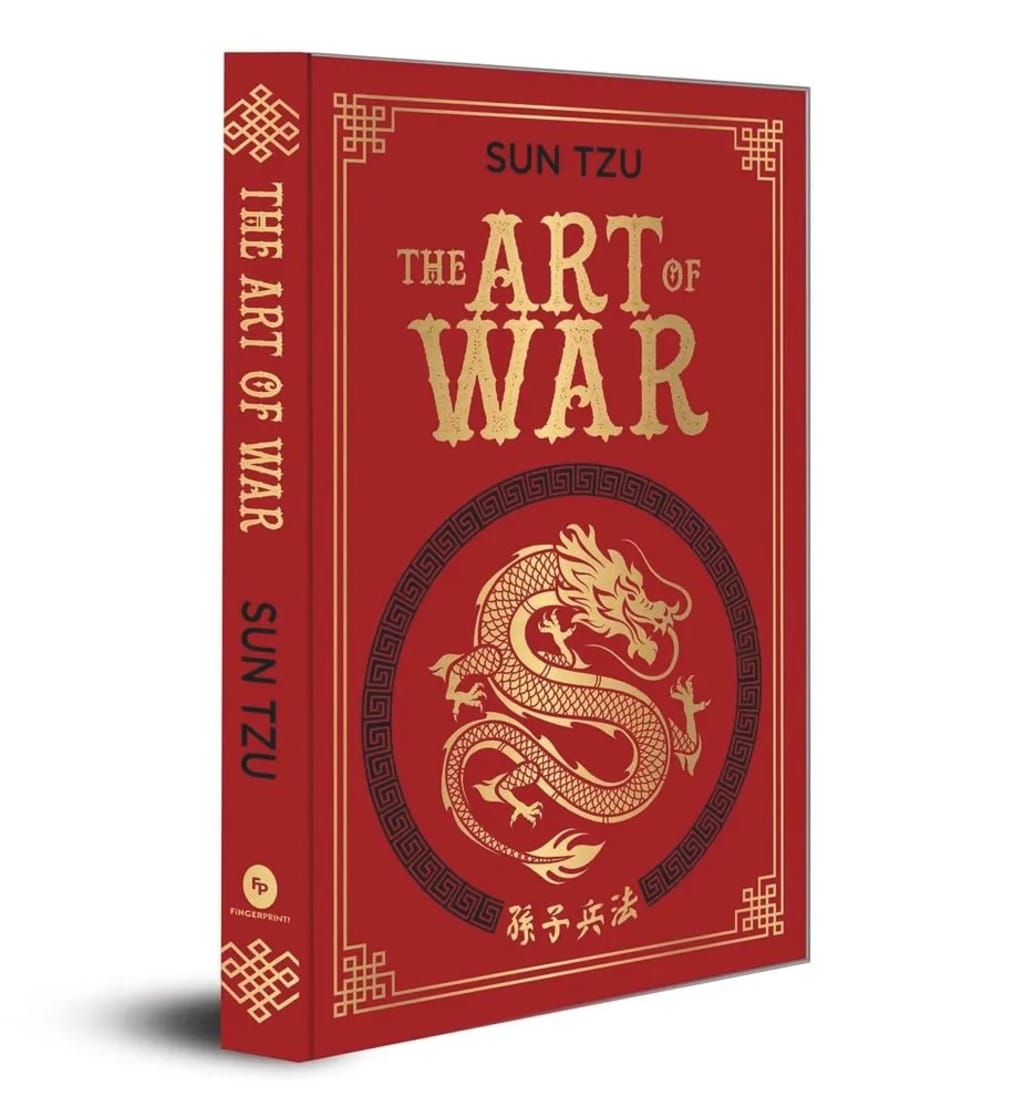Unveiling the Timeless Wisdom: A Review of “The Art of War” by Sun Tzu
The Art of War is Mental, Physical and Spiritual!!!

In the vast expanse of literature, few works have transcended the boundaries of time and culture quite like “The Art of War” by Sun Tzu. Penned over two millennia ago, this ancient Chinese military treatise continues to captivate readers with its profound insights into strategy, leadership, and the dynamics of conflict. As relevant today as it was in ancient China, Sun Tzu’s masterpiece offers invaluable lessons for navigating the challenges of both war and everyday life.
Strategic Brilliance: At its core, “The Art of War” is a manual for strategic thinking. Sun Tzu emphasizes the importance of understanding the terrain, knowing oneself and the enemy, and exploiting weaknesses to achieve victory. His emphasis on flexibility, deception, and the importance of planning resonates not only on the battlefield but also in business, politics, and personal endeavors. Sun Tzu’s strategic brilliance lies in his ability to distill complex concepts into simple, actionable principles that remain applicable across diverse contexts.
2. Leadership Insights: Central to Sun Tzu’s teachings is the role of leadership in shaping the outcome of conflicts. He stresses the significance of leadership by example, effective communication, and the cultivation of trust and loyalty among followers. Sun Tzu’s emphasis on the importance of morale and the judicious use of rewards and punishments underscores his understanding of human psychology and motivation. Whether leading armies or organizations, his insights into leadership remain as pertinent today as they were in ancient China.
3. The Art of Deception: One of the most intriguing aspects of “The Art of War” is Sun Tzu’s emphasis on deception as a key strategy. He advocates for the use of spies, misinformation, and psychological warfare to outmaneuver opponents and gain the upper hand. Sun Tzu’s teachings on deception highlight the importance of understanding the motivations and intentions of adversaries while concealing one’s own plans and objectives. In a world where information is power, his lessons on the art of deception offer timeless wisdom for navigating complex interpersonal and geopolitical dynamics.
4. Adaptability and Flexibility: Sun Tzu famously said, “In the midst of chaos, there is also opportunity.” This sentiment underscores his belief in the importance of adaptability and flexibility in the face of changing circumstances. He advises against rigid adherence to fixed plans, instead advocating for the ability to adjust tactics and strategies in response to evolving situations. Sun Tzu’s emphasis on adaptability resonates strongly in today’s fast-paced world, where agility and responsiveness are essential for success.
5. The Psychology of Conflict: Throughout “The Art of War,” Sun Tzu demonstrates a deep understanding of human nature and the psychological dimensions of conflict. He explores the concepts of momentum, timing, and the manipulation of perceptions to gain strategic advantage. Sun Tzu’s insights into the psychology of conflict offer valuable lessons for understanding the motivations and behaviors of adversaries, allies, and oneself. By mastering the psychological aspects of conflict, one can anticipate and influence the actions of others with greater effectiveness.
6. Philosophical Underpinnings: Beyond its practical wisdom, “The Art of War” is imbued with profound philosophical insights. Sun Tzu’s teachings reflect principles of Taoism, emphasizing harmony, balance, and the interconnectedness of all things. He encourages leaders to cultivate a holistic perspective and to act in accordance with the natural flow of events. Sun Tzu’s philosophical underpinnings serve as a timeless reminder of the importance of wisdom, discernment, and ethical conduct in both war and peace.
In conclusion, “The Art of War” by Sun Tzu stands as a testament to the enduring power of strategic thinking, leadership, and psychological acumen. Its timeless wisdom continues to inspire readers across the globe, offering invaluable guidance for navigating the complexities of conflict and competition in all aspects of life. As we journey through the ever-changing landscape of the modern world, Sun Tzu’s teachings remain a beacon of insight and inspiration, guiding us towards victory in the battles we face, both on and off the battlefield.
CLICK HERE TO START READING & GAINING WISDOM TODAY!!!
Disclaimer: I am an affiliate with Amazon and may receive commissions on any purchase made from this post or link with NO additional cost to you.
Thank you 🙏
Future of Resilience
About the Creator
Amy Johnson
I enjoy writing product reviews, relationships, and parenting blogs. Now, I'm excited to venture into short story writing, weaving tales that entertain, inform, and inspire.
Enjoyed the story? Support the Creator.
Subscribe for free to receive all their stories in your feed. You could also pledge your support or give them a one-off tip, letting them know you appreciate their work.






Comments
There are no comments for this story
Be the first to respond and start the conversation.